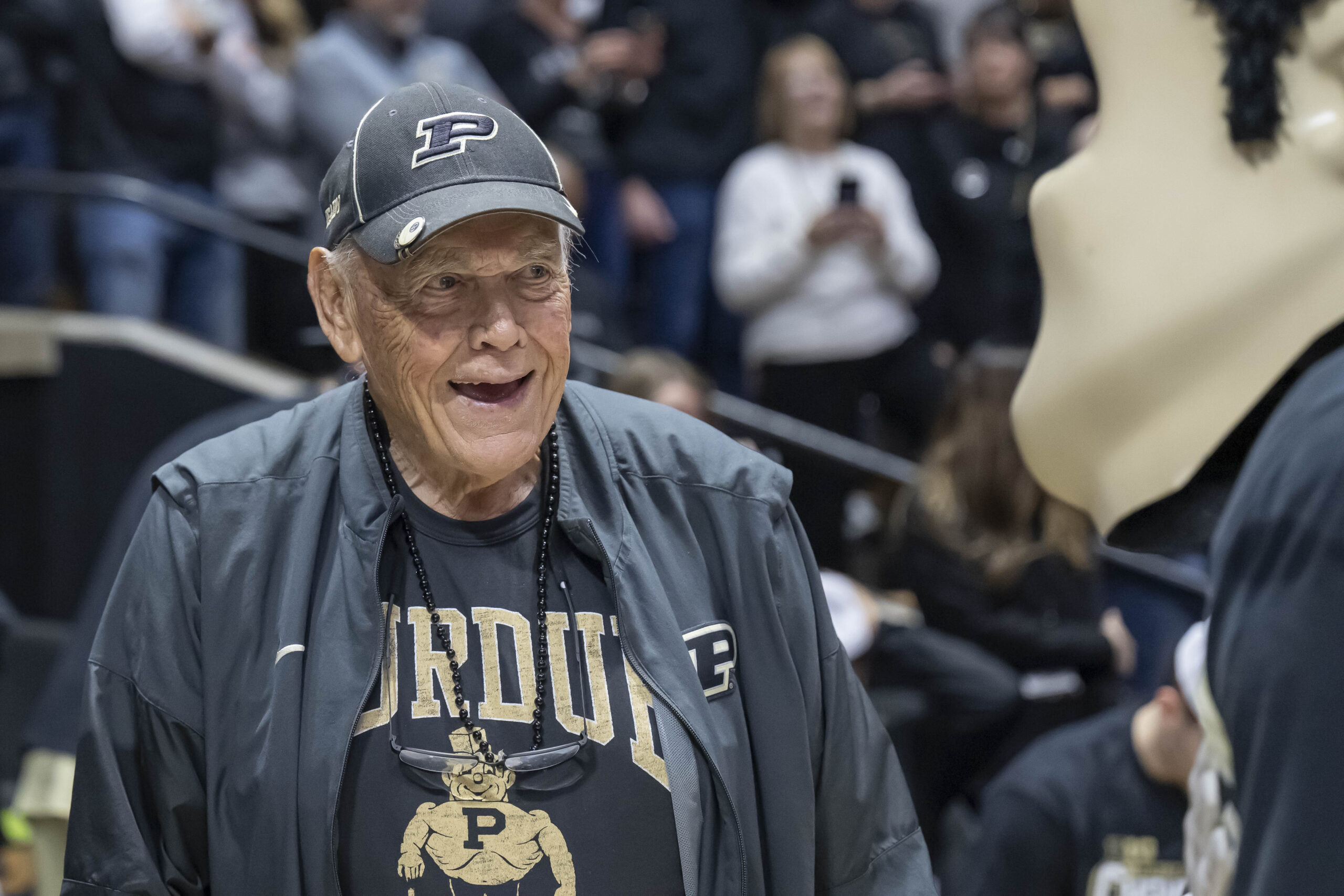In a recent and surprising interview, the mother of Purdue basketball standout Trey Kaufman-Renn shared an unflinching look back at her own experiences growing up during the Gene Keady era—a time that she describes as both transformative and, at times, intensely demanding. Her candid remarks have sparked conversation across the Boilermaker fanbase, particularly among those who revere Keady as a legendary figure in Purdue athletics.
While Trey has made headlines for his powerful presence on the court and emerging leadership role on the Boilermakers’ 2024–25 squad, his mother’s remarks have shined a new light on the legacy of Keady’s tough-love coaching style, particularly how it impacted families and young athletes behind the scenes.
In the interview, she acknowledged Keady’s success and undeniable influence on Purdue basketball, but didn’t shy away from critiquing the high-pressure environment he created. “He demanded excellence in every moment,” she said. “It wasn’t just about winning — it was about complete discipline, absolute toughness, and never showing weakness.”
Describing her time as a player under Keady’s coaching system, she recalled grueling practices and an emotional intensity that could be overwhelming. “You didn’t just grow as an athlete. You were forced to grow up quickly as a person — whether you were ready or not.”
The interview included deeply personal reflections about how that era affected her relationship with the game and how it shaped the values she passed down to her son. “Trey has his own style and strengths, and I’ve always tried to support him in finding his voice on the court. But in the back of my mind, I’ve always remembered what it was like to be in that kind of pressure cooker.”
Despite the criticisms, she made clear that she respects Keady’s place in Purdue history. “He built a program that still stands strong today,” she said. “But sometimes, it’s important to talk about the human cost of that kind of legacy — especially for the kids behind the players.”
Trey Kaufman-Renn, for his part, has not commented publicly on his mother’s statements. Those close to the team describe him as focused and motivated, with a deep respect for Purdue tradition — including the foundations laid by past coaches like Keady. Many believe that while Trey’s approach may differ in tone from the old-school toughness of previous generations, he brings his own brand of intensity and leadership that connects the past with the present.
As Purdue heads deeper into its centennial basketball season, this glimpse into the personal history of one of its key players serves as a reminder: legacies in sports are often built not just on wins and trophies, but on the complex and very real lives that shaped them.


Be the first to comment